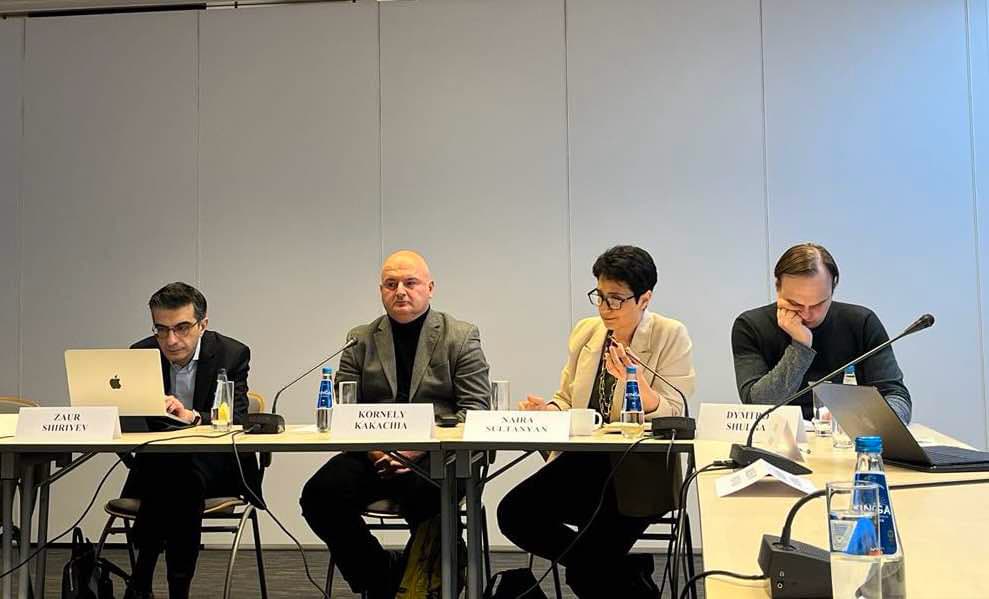On 23 January 2025, Professor Kornely Kakachia, Director of the Georgian Institute of Politics (GIP), participated in an expert workshop as part of the Polish presidency, titled “EU Policy in the Eastern Neighbourhood: A Constantly Changing Geopolitical and Security Landscape.” Prof. Kakachia represented the REUNIR project during the event, contributing insights on the challenges and opportunities in the EU’s Eastern Neighbourhood.
The workshop brought together experts to discuss the impact of Russia’s war against Ukraine, which has significantly reshaped the EU’s role as a geopolitical and normative actor. Key discussions included the securitization of various policy areas—such as energy, trade, and governance—driven by increasing security and connectivity challenges. Participants also explored the EU’s new Black Sea strategy, the evolving role of the Eastern Partnership (EaP), and potential connectivity initiatives linking EaP countries with Central Asia.
The two-day workshop centered around these key questions:
- What should the EU’s aspirations be under the new Commission—adaptation, mitigation, and active participation in shaping the security situation?
- How should existing instruments be adapted, and what new instruments must be developed to react to hybrid and security threats?
- What is the role of EaP in this context?
- How can the domestic resilience of EaP countries be strengthened with the ongoing Russian war in Ukraine and massive operations to impact elections in countries like Moldova?
- How can we ensure a credible enlargement process when social cohesion and the EU’s ability to act are waning?
- How do weak institutions and security threats undermine connectivity, and how do we deal with these challenges?
- How can the EU, as a normative actor, compete with other actors like Russia, Turkey, and China when security, informal politics, and weak institutions are key challenges for the countries in the region?
Prof. Kakachia contributed as one of the speakers in the second session titled “Interplay Between Domestic and Foreign Policy Threats”, where he provided an analysis of how weak institutions, hybrid threats, and regional instability undermine connectivity and resilience-building efforts in the Eastern Neighbourhood.
The workshop was organized by the DGAP’s Think Tank Network on the Eastern Partnership in collaboration with the Mieroszewski Centre and supported by the European Commission. Prof. Kakachia’s participation as a representative of the REUNIR project reinforced the project’s commitment to fostering dialogue and cooperation on critical geopolitical and security issues in the region.

